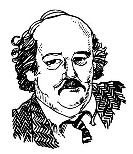(Syndicated to Kansas newspapers Feb. 16, 2015)
 If there is one culture in Kansas that is isolated from nearly every other, it’s probably K-12 education—your local school district.
If there is one culture in Kansas that is isolated from nearly every other, it’s probably K-12 education—your local school district.
There are Kansans who like that isolation, making sure that school board members are not tied to a political party, that they don’t get suggestions from “someone upstream” either politically or through the finance of their election campaigns. Makes sense to some.
There are Kansans who think that isolation essentially makes those school board members less representative of the public that elects them and whose children are in school, and more responsive to the district’s administrators than to the taxpayers who help support the schools.
And, there’s that third factor that operating public schools is now very complicated. There are state and federal laws to be observed, and, well, the schools that kids attend now are instructionally very different than those back in the days before cars came with shoulder belts, or that many people knew that for some pupils, their best meal of the day was their free or reduced-price lunch. Or, even before the Internet.
That education culture is hard to understand fully, and many school board elections draw a fraction of the turnout that participates in those November general government elections for state and national officials.
Maybe that’s a good thing. Maybe those spring school board election voters know what goes on in the schools, what policies and courses and procedures—that all cost money, of course—are necessary to make sure that your children will be job-ready when they graduate—and move out of your home.
Lots of talk at the Statehouse about low turnout in those spring school board elections, and maybe that’s a good thing because presumably those voters are interested enough to know what issues are important, and if their elections were moved to November, the school boards candidates just become a few more boxes to check off before you get back to the car.
And, are those off-the-cuff, just check the box beside the names you aren’t really familiar with votes that you want to elect the people who run your schools? If the candidates must become partisan, as at least one bill getting a hard look by the Legislature proposes, what does that mean?
Will Republicans spend less on schools, or less on administering the school district and more in the classroom? Will Democrats make sure the administration takes care of harder-to-educate students so they are job-ready when they are graduated?
Maybe that political isolation of school board elections—in the spring without party labels behind their names—is best, maybe not. It’s sure a place for political upstarts to open their election careers, getting the probably unstudied votes of party-line voters, which can be leveraged for higher offices later. Or maybe it is a place for those whose sole interest is educating your children, without a non-education focused general government political party litmus test to meet.
There may just be some significant education/election legislation this year that tosses all those questions in the air. There’s even a bill introduced that would disqualify teachers, those married to teachers, who have children who are teachers or who live in the same house with teachers, from seeking school board seats. That’s a way to eliminate the inward-focused industry of educating children, if that’s what you are looking for.
Those decisions come as state funding for school districts is headed downward, and local property taxes for those without children in school or much reason to know what happens in the classroom and why are probably going to inch upward.
Nearly everything dealing with the issues of education and voting are intertwined this session. And, not surprisingly, nobody’s sure how it gets sorted out…if it does…
